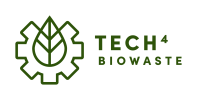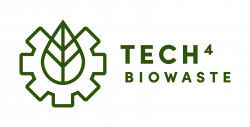Biocomposite processing
In Biocomposite processing bio-based materials are processed to composite materials. Normally, these materials consist of a polymeric matrix that can be fossil- or bio-based. Bio-based materials fixed in this are for example wood dust, natural fibres, straws, rice husks, nutshells and others. Best-known biocomposites are Wood-Plastic-Composites (WPC) or Natural-fibre reinforced materials.
Feedstock
Origin and composition
Biocomposite processing is a secondary process where a composite material is formed by a matrix (resin) and a reinforcement of natural fibers or filling with other biomass-based materials like wood dust, agricultural wastes or sidestreams from food processing like nutshells or rice husks. In principal, the matrix can be a bio-based or a petro-based resin, but normally polymers like polypropylene, polyethylene or epoxys are used as matrix material.
Pre-treatment
The retting process, carried out with warm inoculated water, has been evaluated as a potential method to modify the structure of fibers in order to prepare polymeric biocomposites.[1]
Process and technologies
Types of biocomposites
There are several types of biocomposites on the market that normally have a fossil-based matrix with natural fibre reinforcement or wood filling. In principal also the matrix can be bio-based consisting of bio-based polymers like PLA, bio-PE, biogenic epoxis or PHAs.
Processing technologies
In the compounding process the matrix materials are melted and then mixed with fillers, plasticisers, additives and fibres to a homogeneous formulate that can be given into a screw extruder. This produces an extrudate that will be cooled down in a water bath and then cutted into composite granules. The granules can be used to produce several types of products e.g. by injection moulding or other material processing technologies.
Product
Products of Biocomposite processing are different kinds of biocomposites.
Post-treatment
- Cutting
- Blown film extrusion
Biocomposite pellets are processed in an extrusion line machine, forcing the melt through a narrow slit die. The resulting thin film has the form of a tube also called a “bubble” (blown film).
Film blowing is a process of producing film by extrusion of molten biocomposite polymer into a continuous tube. The elements of the process include the resin pellets which are fed through a hopper into the extrusion line. Heat and friction convert the pellets to a melt which is forced through an annular or ring-shaped die to form a tube. The tube is inflated to increase its diameter and decrease the film gauge. At the same time, the tube is drawn away from the die, also to decrease its gauge. The tube, also called a “bubble,” is then flattened by collapsing frames and drawn through nip rolls and over idler rolls to a winder which produces the finished rolls of film.
As the tube inflates, its thickness becomes uniformly thinner as orientation in the transverse direction occurs, allowing a variety of thicknesses to be produced by combined control of the extruder throughput, inflation, and roller speed. As the inflation diameter increases relative to the annular die size, material orientation is increased and this ratio is known as the blow-up ratio. The extrusion die is shaped as a circle and air pressure is used to further expand the film. After it is expanded to the desired dimensions it is cooled to solidify thus creating flexible films for different applications.
Technology providers
| Company name | Country | Technology subcategory | Technology name | TRL | Capacity [kg/h] | Feedstock: Food waste | Feedstock: Garden & park waste | Matrix material: Epoxys | Matrix material: PE | Matrix material: PP |
|---|---|---|---|---|---|---|---|---|---|---|
| Mi-plast d.o.o. | Croatia | - | Biocomposite blown extrusion processing | 6 | - | |||||
| Planet Bioplastics | Italy | - | Blend and composite compounding | 6 | 57 | |||||
| Zelfo Technology GmbH | Germany | - | Natural Fibre Engineering | 9 | 500-2000 | ● | ● |
Mi-plast d.o.o.
| General information | |||
| Company: | Mi-plast d.o.o. | 
| |
| Country: | Croatia | ||
| Contact: | mi-plast@mi-plast.eu | ||
| Webpage: | https://mi-plast.eu/en/ | ||
| Technology and process details | |||
| Technology name: | Biocomposite blown extrusion processing | Technology category: | Conversion (Material processes and technologies) |
| TRL: | 6 | Capacity: | kg·h-1 |
| Application fields: | Packaging industry | Matrix: | |
| Other: | |||
| Feedstock and product details | |||
| Feedstock: | Bio-based polymers | Product: | Flexible films and bags |
Mi-plast is a private company based in Rijeka, Croatia, and has been active as an industrial producer of polyethilene flexible packaging since 1993. Its portoflio includes products used in construction, agriculture, packaging industry and retail. In 2010s, the company formed a Research and development department with the purpose of following the global ambition in reducing the environmental footprint. Participation in EU funded programmes enabled Mi-plast to gain knowledge on production of biocomposite polymers.
Planet Bioplastics
| General information | |||
| Company: | Planet Bioplastics | 
| |
| Country: | Italy | ||
| Contact: | info@planetbioplastics.com | ||
| Webpage: | https://www.planetbioplastics.com | ||
| Technology and process details | |||
| Technology name: | Blend and composite compounding | Technology category: | Conversion (Material processes and technologies) |
| TRL: | 6 | Capacity: | 500 ton/y kg·h-1 |
| Application fields: | Injection moulding, thermoforming, film production | Matrix: | Biopolymers |
| Other: | Not relevant | ||
| Feedstock and product details | |||
| Feedstock: | Bioplymers, additives and natural fibres | Product: | Bioplastic pellets |
Planet Bioplastics is an innovative start-up, spin-off of the University of Pisa founded in 2017 by owners with large experience in production and marketing of polymeric materials. The managerial team, on the academic side, is composed of a professor with strong scientific background on the properties and transformation of biopolymers and with huge experience in National and European projects, carried out both as coordinator and RTO partner. The business side is composed of an expert marketing sales manager and three entrepreneurs, who own a company that carries out recycling and compounding of traditional plastic materials. They have 55 years of specialization in the regeneration and trade of plastic materials, with the mission of reducing non-recoverable plastic waste to the minimum terms and promoting the culture of using regenerated material, significantly reducing the use of virgin raw materials.
This solid academic know-how, combined with the great experience of the managerial team in industrial production and marketing of polymers, provide quick and able answers to the continuous evolution of the technical-legislative needs of circular and sustainable economy, with the aim to bridge the current gap in terms of performance and price between traditional plastic and sustainable solutions.
The company has access to equipment for processing and characterisation at pilot scale in the University of Pisa and in the company Caldara, for industrial scale, producer of recycled plastic compounds, whose owners are even partly owners of PLANET. Beypond the commercialization of its own products, the company plans to be involved in regional, national and European projects with high R&D participation but oriented to obtaining innovative products to propose on the market of bioplastics. Planet Bioplastics is a full Biobased Industries Consortium member and partner of three European H2020 projects.
Zelfo Technology GmbH
| General information | |||
| Company: | Zelfo Technology GmbH | 
| |
| Country: | Germany | ||
| Contact: | Grégoire de Vilmorin | ||
| Webpage: | https://www.zelfo-technology.com | ||
| Technology and process details | |||
| Technology name: | Natural Fibre Engineering | Technology category: | Conversion (Material processes and technologies) |
| TRL: | 9 | Capacity: | 500 to 2000 kg·h-1 |
| Application fields: | Moulded Fibre: Fibre Boards | Matrix: | |
| Other: | |||
| Feedstock and product details | |||
| Feedstock: | Cellulosic (virgin or recycled) and ligno-cellulosic (agro-residues) sources | Product: | Self-Binding fibres |
Zelfo Technology GmbH is a natural fibre engineering company and its mission is to upgrade and valorize a wide range of new, recycled, and residual cellulose fibres. Zelfo Technology has more than 15 years experience working with natural fibres and has developed a patented technology that can be seen as a platform, with multiple intake materials - virgin and recycled cellulose, ligno-cellulosic materials, and agro-residues, industrial waste streams - and multiple fibre engineering solutions for paper, packaging, and fiberboard applications. Zelfo Technology is located in North Germany with both head office and pilot plant in Brandenburg (North of Berlin), and its business model is to license its technology. The pilot plant can supply pre-industrial quantities, as well as material testing facilities. The main application today is in moulded fibre packaging.
Open access pilot and demo facility providers
Patents
Currently no patents have been identified.
References
- ↑ Sisti, Laura; Totaro, Grazia; Vannini, Micaela; Fabbri, Paola; Kalia, Susheel; Zatta, Alessandro; Celli, Annamaria, 2016: Evaluation of the retting process as a pre-treatment of vegetable fibers for the preparation of high-performance polymer biocomposites 2016/03/01, Last access 14/02/2022. https://www.researchgate.net/publication/285782567_Evaluation_of_the_retting_process_as_a_pre-treatment_of_vegetable_fibers_for_the_preparation_of_high-performance_polymer_biocomposites


